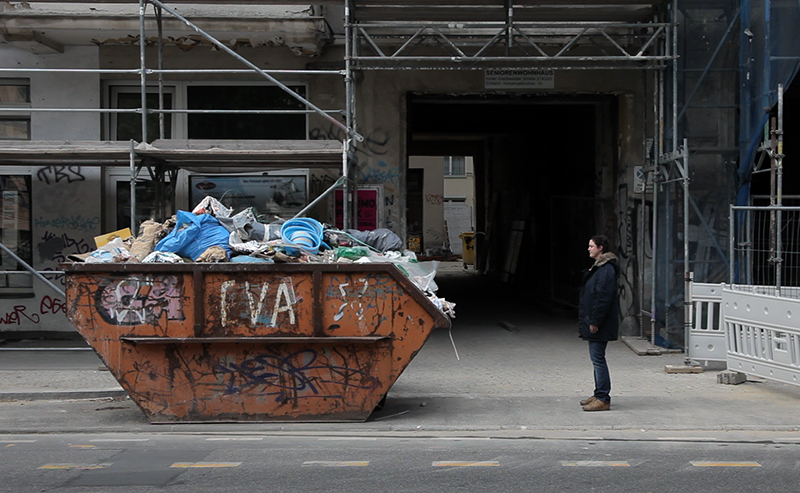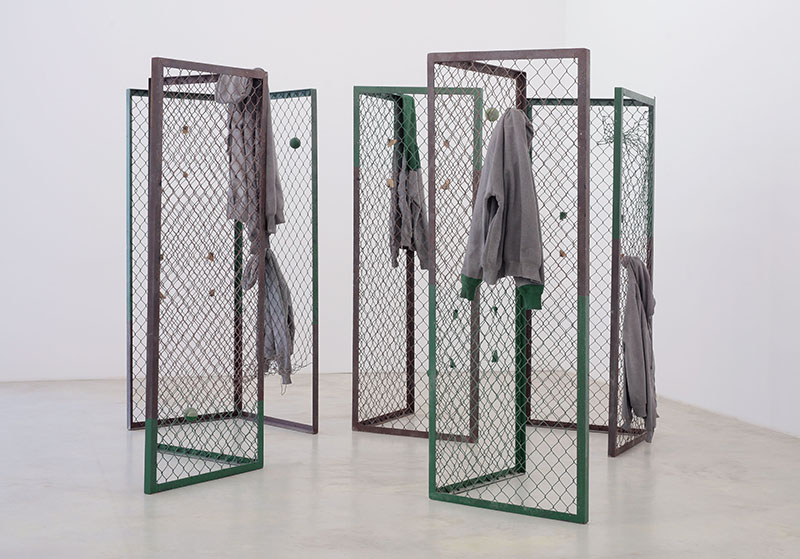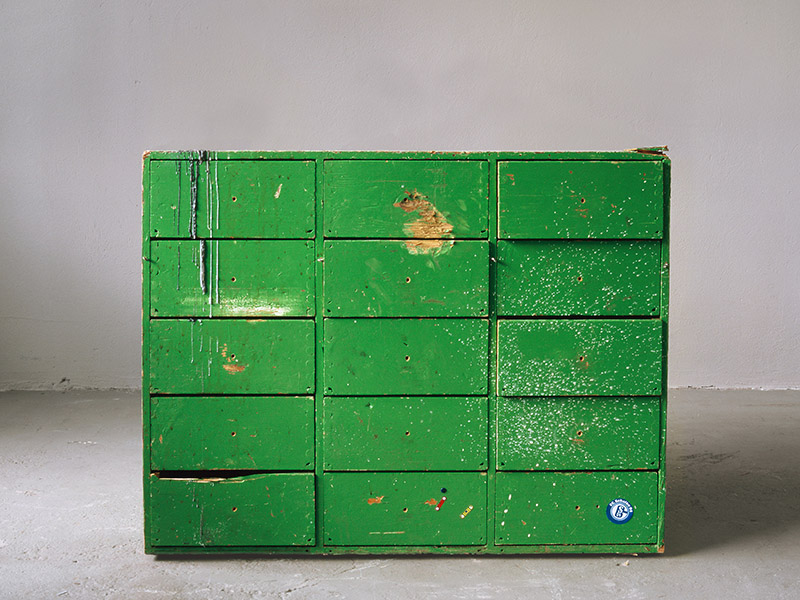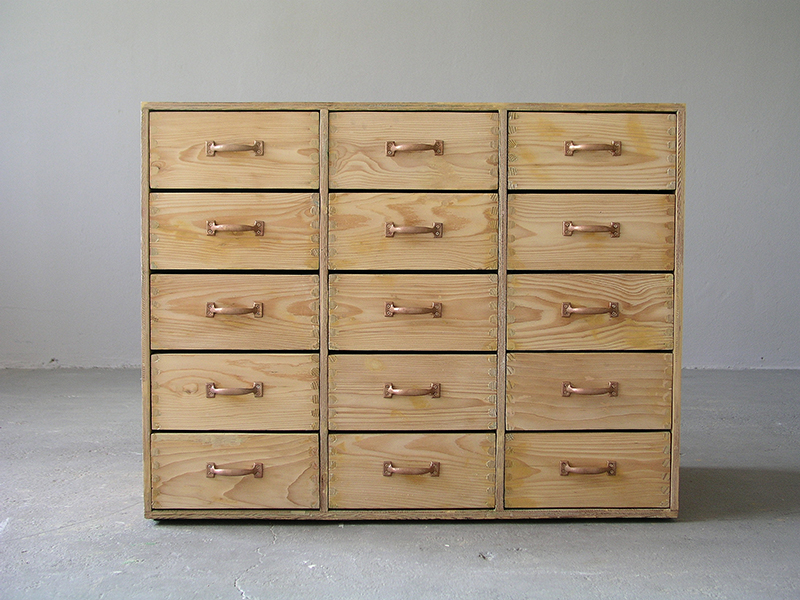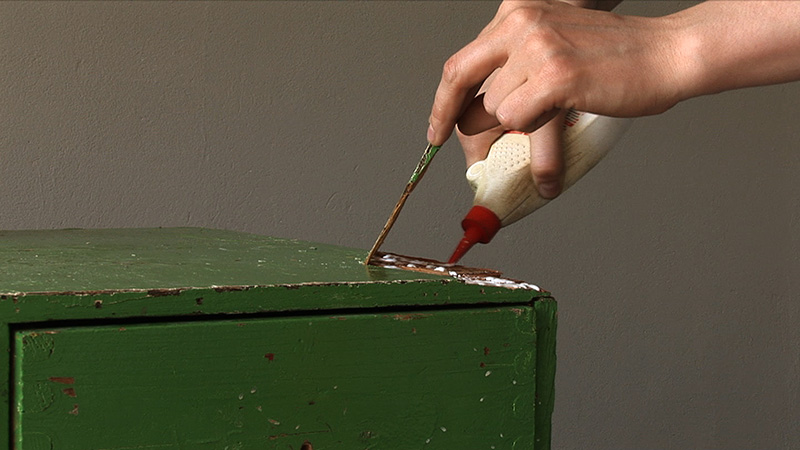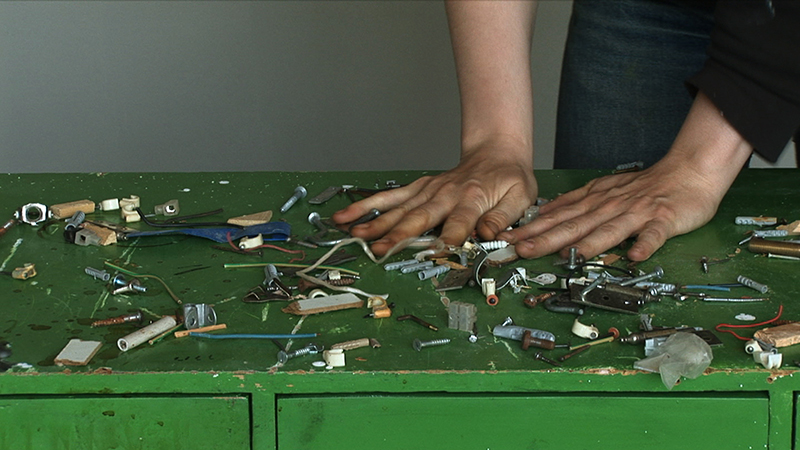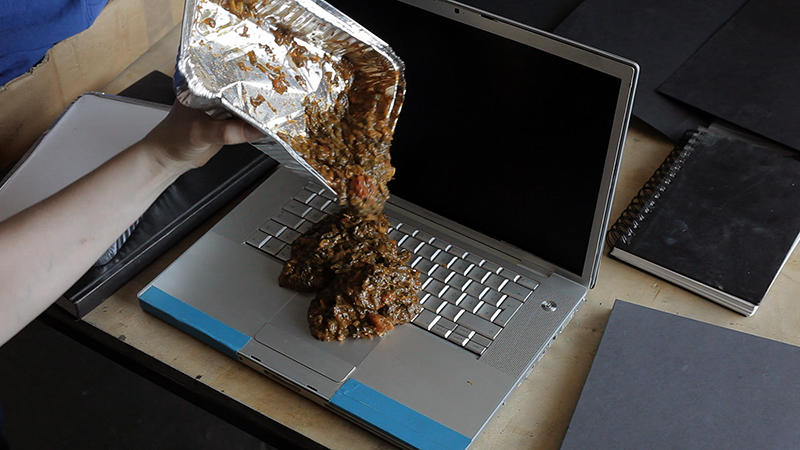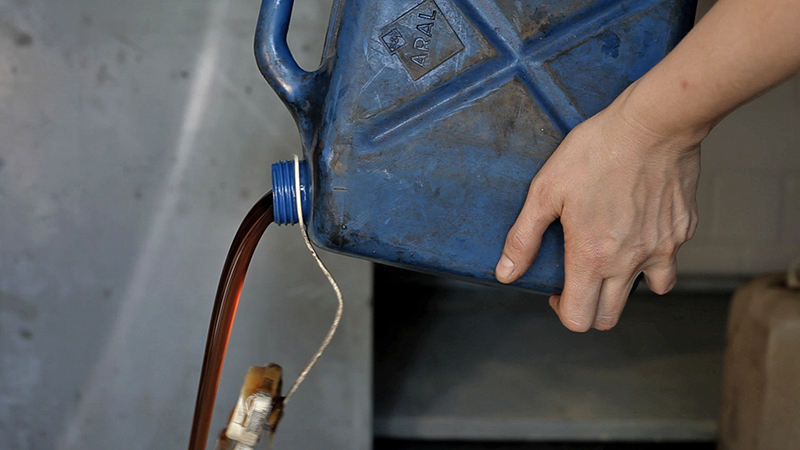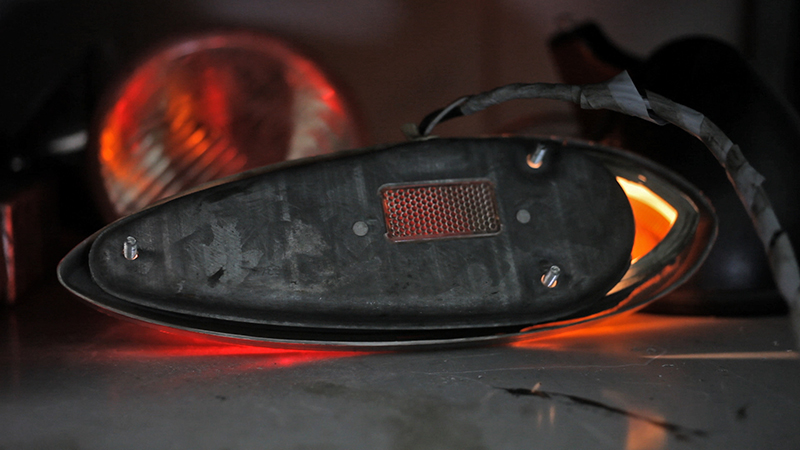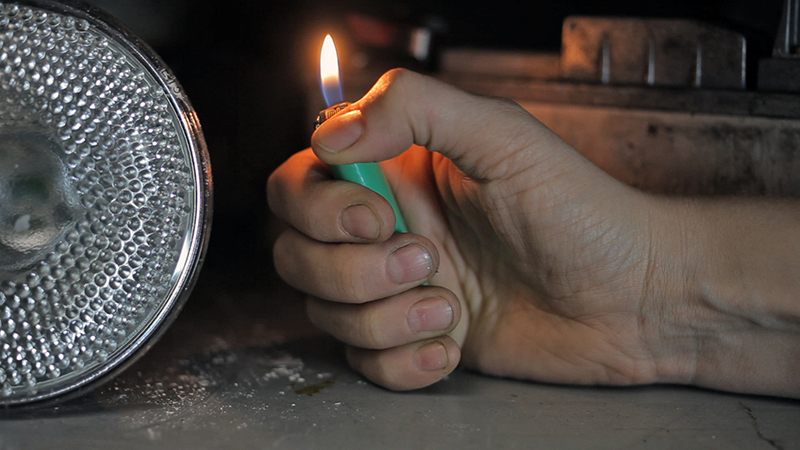ART CITIES:Zurich-Sofia Hultén
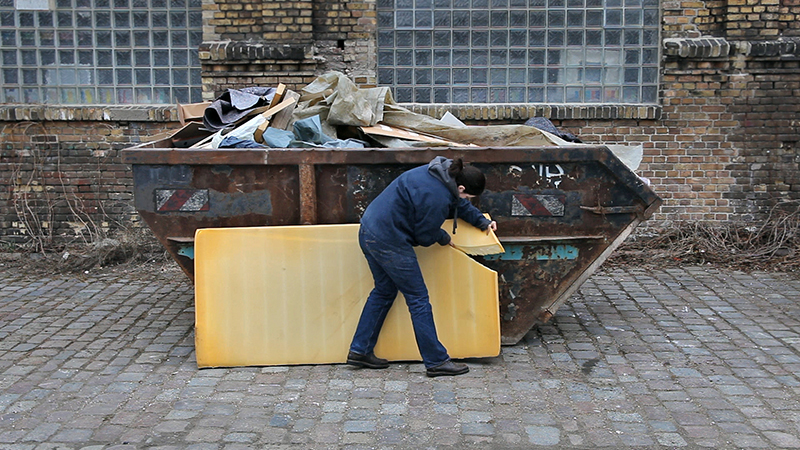 Sofia Hultén’s works start with found objects, unremarkable everyday items or materials from the streets, the world of DIY stores and workshops, reinforcing the idea of looking twice at what is all-too-often taken for granted. Via a series of methodical manipulations that sometimes verge on the absurd, she examines the found objects that are marked by their previous lives or processes them into new arrangements. She alters the ordinary course of events with subtle gestures, usually documented on video.
Sofia Hultén’s works start with found objects, unremarkable everyday items or materials from the streets, the world of DIY stores and workshops, reinforcing the idea of looking twice at what is all-too-often taken for granted. Via a series of methodical manipulations that sometimes verge on the absurd, she examines the found objects that are marked by their previous lives or processes them into new arrangements. She alters the ordinary course of events with subtle gestures, usually documented on video.
By Dimitris Lempesis
Photo: Museum Tinguely Archive
A selection of sculptures, installations and films, the exhibition “Here’s the Answer, What’s the Question?” is Sofia Hultén’s most comprehensive exhibition to date. In Hultén’s hands, banal things as a broken cup, the contents of a found toolbox, a graffiti-covered rolling shutter, or a collection of used scissor jacks cause major questions to be addressed to a material world that may not be as solid as it looks. Her play on space and time is never free of (self-)irony and, besides a sense of rhythm and poetry, it displays an absurd sense of humour. With a feel for detail and the magnificence of the easily overlooked, Hultén’s works also encourage us to engage more closely with things that usually remain on the margins of our attention but which exert a decisive influence on our everyday lives. The installation “Mutual Annihilation” (2008) consists of a chest of drawers and four videos of its restoration, and re-restoration. In two of the films, we see Sofia Hultén carefully working on the weather-beaten piece of furniture: stripping paint, adding handles, repairing damaged drawers. The other two show her attempts, using various tools and methods, to return the restored object to precisely the same battered state in which she found it. With this absurd endeavour, Hultén playfully resists the impossibility of turning back time. “Nu Cave” (2011) presents the entire contents of a closing-down sale of a private garage workshop on shelves in the exhibition space. Four videos shown on the back wall of the shelving unit document the artist’s self-imposed task of using each object one last time. The title “Nu Cave” is both a pun on the mid-2000s music genre “nu rave” and an allusion to the classical allegory in which the philosopher Plato describes the experience of people held captive in a cave. The video “Past Particles” (2011) focuses attention on more than a thousand different objects contained in a found toolbox. Every single one of these components and spare parts appears on screen for exactly four seconds. But although these small objects manifestly once served some ordinary everyday purpose, presented in such hugely enlarged form they seem almost mysterious: their individual history remains hidden in the past, as suggested in the work’s title that blends the ‘past participle’ (used to form various grammatical tenses) and the ‘particles’ that make up our world. In “History in Imaginary Time” (2012) on five sections of chain-link fence, a tennis ball, paint, the corners of a torn-down poster, and a hooded top are combined in five different states and arrangements. The work alludes to a situation which may be observed at the edge of school yards, municipal parks and playgrounds. Each arrangement tells a different possible story of an encounter between these items. In ”Immovable Object/Unstoppable Force (Skips)” (2012), we see Sofia Hultén in the streets of Berlin, attempting to move various skips by mind- power alone. According to the artist, she followed instructions for moving large objects by telekinesis that she found online. On the one hand, faced with the unmoving skips – and in spite of all the artist’s mental efforts – the unstoppable force evoked in the title has a comical side to it. But it also triggers associations with the huge rest energy of non-moving mass. The “Particle Boredom” (2016-17) series began with pieces of particle board found discarded on the street, probably remnants from building or renovation work in the city. The artist made a latex cast of these boards then pulped them before pouring them back into their original forms. The boredom in the work’s title may be a reference to this fundamental but barely visible alteration of the material. The series of wall sculptures “Pattern Recognition” (2017), is based on puzzles presented by the Russian computer scientist Mikhail Bongard in his 1967 book “Pattern Recognition as a test for intelligent machines: a system capable of identifying the opposites portrayed in Bongard’s drawings (empty/full, symmetrical/ asymmetrical, etc.) would display a human capacity for problem- solving. Sofia Hultén recreates Bongard’s drawn puzzles using workshop materials: in each individual work, she arranges tools based on two principles that constitute a pair of logical opposites.
Info: Curator: Lisa Anette Ahlers, Museum Tinguely, Paul Sacher-Anlage 2, Basel, Duration: 24/1-1/5/18, Days & Hours: Tue-Sun 11:00-18:00, www.tinguely.ch
